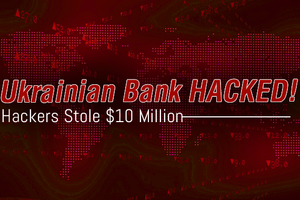The malware that took down a power grid
 A week before last Christmas hackers struck an electric transmission station north of the city of Kiev, blacking out a portion of the Ukrainian capital equivalent to a fifth of its total power capacity. The outage lasted about an hour — hardly a catastrophe.
A week before last Christmas hackers struck an electric transmission station north of the city of Kiev, blacking out a portion of the Ukrainian capital equivalent to a fifth of its total power capacity. The outage lasted about an hour — hardly a catastrophe.
But now cybersecurity researchers have found disturbing evidence that the blackout may have only been a dry run. The hackers appear to have been testing the most evolved specimen of grid-sabotaging malware ever observed in the wild. Cybersecurity firms plan today to release detailed analyses of a piece of malware used to attack the Ukrainian electric utility Ukrenergo seven months ago.
Read moreHackers steal $10 million from Ukrainian bank
 A Ukrainian bank has become the latest victim of the widespread cyber attack on global banking and financial sector by hackers who target the backbone of the world financial system, SWIFT. Hackers have reportedly stolen $10 Million from an unnamed bank in Ukraine.
A Ukrainian bank has become the latest victim of the widespread cyber attack on global banking and financial sector by hackers who target the backbone of the world financial system, SWIFT. Hackers have reportedly stolen $10 Million from an unnamed bank in Ukraine.
Swift or the Society for Worldwide Interbank Financial Telecommunication is the global banking messaging system responsible for managing Billions of dollars in money transfers each day between financial institutions worldwide. The ISACA branch in Ukraine disclosed that some unknown hackers were able to compromise the bank's security in similar way they hacked Bangladesh central bank.
Read moreSpy agencies secretly rely on hackers
 The governments of the USA, UK and Canada characterize hackers as a criminal menace, warn of the threats they allegedly pose to critical infrastructure, and aggressively prosecute them, but they are also secretly exploiting their information and expertise, according to top secret documents.
The governments of the USA, UK and Canada characterize hackers as a criminal menace, warn of the threats they allegedly pose to critical infrastructure, and aggressively prosecute them, but they are also secretly exploiting their information and expertise, according to top secret documents.
In some cases, the surveillance agencies are obtaining the content of emails by monitoring hackers as they breach email accounts, often without notifying the hacking victims of these breaches. These revelations about the intelligence agencies’ reliance on hackers are contained in documents provided by Edward Snowden.
Read moreNew virus “Privet:) Tebe foto…” attacks mobile phones
 SMS-virus attacks Ukrainian users‘ smartphones. Only devices, based on Android platform are under thread. Many owners of smartphones, Ukrainian mobile operators subscribers became victims of SM-virus. It attacks in such a way that all money is drawn from account, calls are locked, and thus a virus sends messages with the harmful program link to all contacts in the phone book.
SMS-virus attacks Ukrainian users‘ smartphones. Only devices, based on Android platform are under thread. Many owners of smartphones, Ukrainian mobile operators subscribers became victims of SM-virus. It attacks in such a way that all money is drawn from account, calls are locked, and thus a virus sends messages with the harmful program link to all contacts in the phone book.
Having received the message from known or unknown number, the subscriber follows the link and automatically catches Trojan. After installation, the virus sends information on the victim‘s device, such as IMEI, IMSI, owner‘s number, his location, the version of OS, the model of smartphone etc.
Read more New secured zone of Google Play: secure messenger SafeUM for Android. Download, Install, Communicate
New secured zone of Google Play: secure messenger SafeUM for Android. Download, Install, Communicate
Axarhöfði 14,
110 Reykjavik, Iceland














